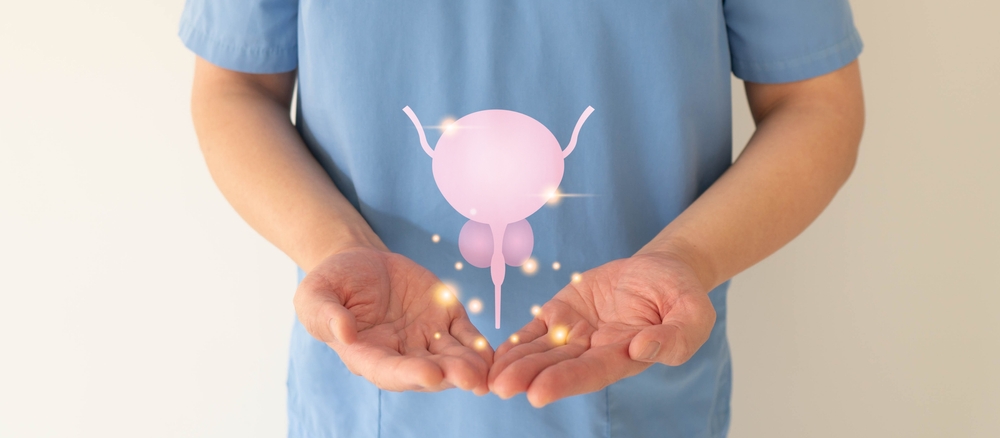

Weak Flow of Urine – Causes, Diagnosis, and Treatment at Emirates Hospitals Group
A weak flow of urine, also known as urinary hesitancy or slow urination, can be a frustrating and uncomfortable condition. It can interfere with daily life and may be indicative of an underlying health issue. If you’re experiencing difficulty with urination, incomplete bladder emptying, or a weak stream, it’s essential to seek a proper diagnosis. At Emirates Hospitals Group, our specialists provide expert care to identify the cause of your symptoms and offer effective treatments to restore your urinary health and comfort.
Causes of Weak Flow of Urine
Weak urine flow can be caused by a variety of conditions, including:
- Benign Prostatic Hyperplasia (BPH): An enlarged prostate in men can put pressure on the urethra, making it difficult to urinate freely and causing a weak stream.
- Urinary Tract Infections (UTIs): UTIs can cause inflammation in the urinary tract, leading to a weak or interrupted urine flow, along with pain or discomfort.
- Bladder Obstruction: Conditions such as kidney stones or bladder stones can block the flow of urine, resulting in a weak stream or difficulty fully emptying the bladder.
- Urethral Stricture: A narrowing of the urethra, often due to injury, infection, or scarring, can impede the normal flow of urine.
- Neurological Conditions: Diseases that affect nerve function, such as multiple sclerosis, Parkinson’s disease, or spinal cord injuries, can interfere with the signals controlling urination, leading to weak urine flow.
- Medications: Some medications, such as certain antihistamines or decongestants, can relax the muscles involved in urination and cause a weak urine stream.
- Pelvic Floor Dysfunction: Weak or damaged pelvic floor muscles can impair bladder function and contribute to difficulty urinating.
- Overactive Bladder or Incomplete Emptying: Some individuals may feel the urge to urinate frequently but experience difficulty fully emptying the bladder, resulting in a weak flow.
- Prostatitis: Inflammation of the prostate gland can lead to urinary symptoms, including weak flow and difficulty starting or stopping urination.
Symptoms of Weak Flow of Urine
Common symptoms associated with a weak urine flow include:
- A weak or interrupted stream of urine.
- Difficulty starting or stopping urination.
- Straining or prolonged effort required to urinate.
- A sensation of incomplete bladder emptying.
- Dribbling or leaking after urination.
- Pain or discomfort during urination.
- Frequent urge to urinate but difficulty passing urine.
Diagnosis of Weak Flow of Urine
To determine the cause of weak urine flow, a thorough evaluation is required. At Emirates Hospitals Group, our specialists use advanced diagnostic tools to accurately assess your condition:
- Physical Examination: A detailed examination to assess your urinary health and identify any signs of physical obstruction or abnormalities.
- Medical History: A review of your medical history, including any previous urinary tract conditions, surgeries, medications, or neurological issues, helps pinpoint the cause.
- Urinalysis: A urine sample may be tested to check for signs of infection, blood, or abnormal substances that could be affecting urination.
- Post-Void Residual Volume Test: This test measures the amount of urine left in the bladder after urination, which can help diagnose incomplete emptying or bladder dysfunction.
- Ultrasound or CT Scan: Imaging tests may be used to examine the bladder, kidneys, and prostate to detect any blockages, stones, or structural issues.
- Urodynamic Testing: This series of tests measures the pressure and flow of urine to evaluate bladder function and identify any obstructions or dysfunction in the urinary system.
- Cystoscopy: A procedure where a thin tube with a camera is inserted into the bladder to examine the inside of the urethra and bladder for abnormalities.
Treatment for Weak Flow of Urine in Dubai
Treatment for weak urine flow depends on the underlying cause. At Emirates Hospitals Group, we offer personalized treatment plans to address your symptoms and restore normal urinary function. Common treatment options include:
- Medications: Alpha-blockers or 5-alpha-reductase inhibitors may be prescribed for conditions like BPH to reduce prostate size and improve urine flow. Antibiotics or antifungal medications may be used for UTIs.
- Bladder Training: Behavioral therapy that involves scheduled urination and pelvic floor exercises can help retrain the bladder and improve urination patterns.
- Surgical Intervention: If an obstruction such as kidney stones or an enlarged prostate is causing weak flow, surgery may be necessary to remove the blockage or treat the condition (e.g., prostatectomy, lithotripsy).
- Pelvic Floor Physical Therapy: Strengthening the pelvic floor muscles through targeted exercises can improve bladder control and reduce difficulty with urination.
- Urethral Dilation: For urethral strictures, a procedure that widens the urethra may be performed to improve urine flow.
- Neurological Treatment: For those with nerve-related causes of weak urine flow, medications, physical therapy, or surgical treatments may help improve nerve function and bladder control.
- Catheterization: In cases of severe urinary retention or bladder dysfunction, a catheter may be used temporarily or long-term to assist with urination.
- Lifestyle Modifications: Drinking plenty of fluids, avoiding bladder irritants, and maintaining a healthy weight can support optimal bladder function and urinary health.
Preventing Weak Flow of Urine
To maintain good urinary health and reduce the risk of weak urine flow, consider these preventive measures:
- Stay Hydrated: Drink plenty of water to help keep the urinary system functioning properly.
- Practice Good Bathroom Habits: Don’t delay urination when you feel the urge, and take time to fully empty your bladder.
- Maintain a Healthy Weight: Excess weight can put pressure on the bladder and pelvic floor, contributing to urinary issues.
- Avoid Bladder Irritants: Limit the consumption of caffeine, alcohol, and spicy foods that can irritate the bladder.
- Exercise Regularly: Strengthening your pelvic floor muscles through regular exercise can improve bladder control and reduce urinary symptoms.
Related Treatments
Request an appointment
Please complete the details and we will book you shortly.
